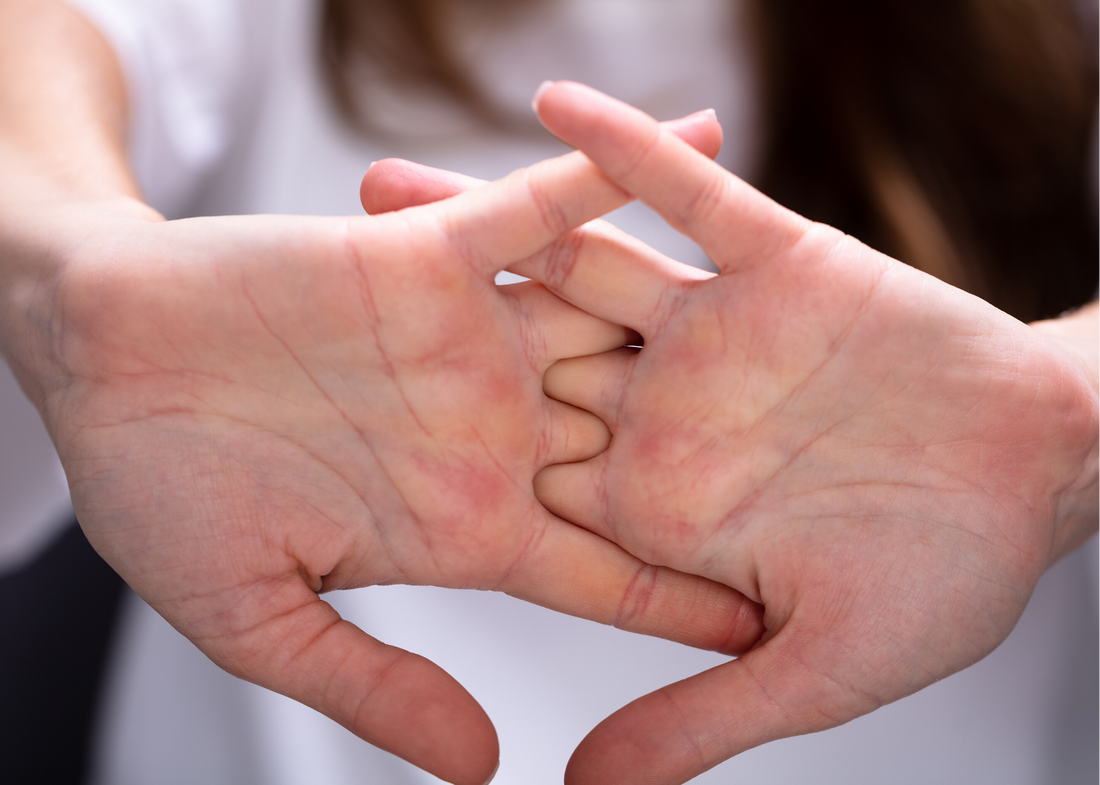|
We've all experienced a joint making a click, crack or crunch noise at some point. Some people much more than others. But what is it that causes a joint to become noisy like this? And does it spell bad news for your joints down the track? Cavitation - The Gas Bubble
Cavitation is normal and not dangerous. Most popping and cracking joint noises are likely to be caused by cavitation - that is, the formation of a gas bubble within the joint. Now you may have heard that joint noises are the popping of an existing gas bubble within the joint, however an interesting study published in PLoS One (Public Library of Science) in 2015 used real time visualisation of a joint under MRI to see exactly what occurs in the joint space when you crack a knuckle. What they found was that when the joint separated, it formed a bubble, rather than popping an existing bubble. Its called tribonucleation - this complicated sounding word describes the process of creating gas bubbles between two objects. It involves two solid surfaces that are covered in a liquid that contains dissolved gas. The surfaces resist being pulled apart because the liquid creates a suction effect, until enough force is generated to suddenly break the contact with each other, resulting in creating a gas bubble. In a joint, the solid surfaces are the two bones and articular cartilage surfaces that form the joint. The liquid containing dissolved gas is the joint fluid, called synovial fluid, that lubricates the joint surfaces to make it easy and smooth for the cartilage-covered bony ends to slide over each other. When a joint is put under enough force, the bony ends can be moved far enough from each other to break their contact momentarily, and cause that familiar pop noise. This can happen from purposefully trying to crack a joint, like cracking your knuckles, or from movements like squatting which can make your knees crack, or doing a spinal twist stretch which might crack your back either intentionally or unintentionally. People with hypermobility in their joints can experience a lot more popping and cracking noises than other people. This is because their joints tend to have more freedom of movement due to having stretchy ligaments so its easier for cavitation to occur. The role of ligaments is to connect the two bones of a joint together and keep it stable and stop the bony ends from separating. Will it cause arthritis? Its unlikely that cracking your knuckles and achieving that satisfying cavitation "pop" will cause you to develop arthritis in the long term, there are many more factors involved in developing arthritis. Movement of Tendons over Joints These sounds tend to be more of a snapping type of sound, because its the sound of the tendon moving over a bony area of the joint. Tendons are the strong connective tissue bands that connect muscles to bones, and for muscles to move a joint they need to cross over it. This means that sometimes the tendon will have to slide over a bony point where it will have to stretch like a rubber band to maneuver it, and will "snap" back due to elasticity of the tissue. Common snapping sounds from tendon movement can be heard in the knees, hips and shoulders. These movements shouldn't be painful, but if you do start to feel pain when you're hearing or feeling the movement of the tendon over your joint, get it checked out. Your myotherapist may be able to make a big change to the discomfort through simple muscle relieving techniques. Changes in Articular Cartilage Sounds from changes in articular cartilage tend to sound crunchy, crispy or "like gravel". Its called crepitus, but the sound is often worse than the sensation, and many people don't feel any pain at all. The term "bone on bone" gets thrown around, and this scares a lot of people because they visualise the bones literally grinding away at each other. The reality is that the ends of our bones are covered in articular cartilage, which is a smooth, squishy padding on the ends of bones that makes movement easy, fluid and painless and which prevents any direct "bone on bone" contact. Over a lifetime there will be normal changes to your cartilage, just like there is to a car, or a pair of shoes, or a well used garden pathway. Sometimes the changes in the cartilage can be that it becomes torn or damaged, for example if you have an accident, take a big impact to the joint, or get an infection. It can also build up over time from things like high intensity sports, repetitive use of the joint, or increased load on the joints from growing quickly or rapid weight gain such as pregnancy. Damaged cartilage can break down and remain in the joint space, which means the once-smooth surfaces become a bit rough, and there may be particles in the joint fluid. This can cause noisy movement of the joints, but its often painfree. Sometimes this can cause the joint to become irritated, which may cause it to swell up or become hot and inflamed, and then it can be temporarily painful. Do you need surgery? Many kinds of surgeries are used for joint problems, but not every person needs to go down the surgery avenue. Surgeries range from very short day procedures like arthroscopes which clean out cartilage debris in the joint space, to full joint reconstruction or replacement surgeries. Many people find they can prevent surgery for a long time with a tailored exercise program to strengthen the joint and reduce load on it, and using supports like braces or taping. Surgery is not guaranteed to fix the problem. Try your first treatment for $97 (normally $115) If you're having significant pain with your noisy joints, let us help - book an appointment with us today! |
Meet Our Team
We have a team of great practitioners available 7 days a week at our Rowville clinic. Archives
July 2024
Categories
All
|
Got a question about Myotherapy?
Contact Mel by phone, email or Facebook
|
Simple Wellness Myotherapy & Remedial Massage Clinic
Shop 12B 150 Kelletts Rd Rowville VIC 3178 |
Phone us on
03 8204 0970 |


 RSS Feed
RSS Feed